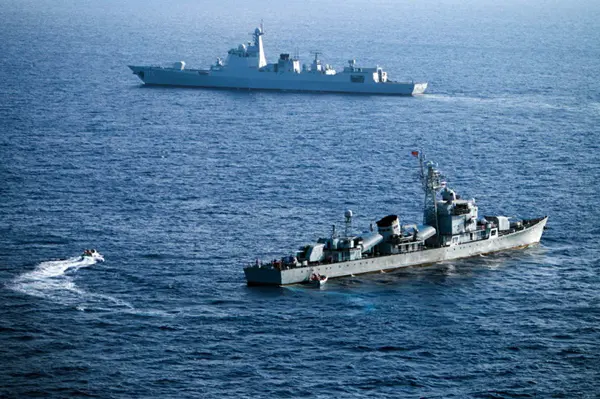China and the Philippines should engage in "constructive" dialogue to solve their dispute in the South China Sea as conflicts are "destructive" to all sidess, some experts said.Arbitration cannot solve the South China Sea dispute between China and the Philippines.
"It is a principle of international law that all sides must agree on the arbitration," Padraig Lysaght said in a recent interview with Xinhua. "Otherwise, the result of the arbitration is not binding."
The Philippines unilaterally filed in the Permanent Court of Arbitration in the Hague, the Netherlands, an arbitration case against China over South China Sea disputes in January 2013.
China maintains that the tribunal has no jurisdiction over the case, which is in essence about territorial sovereignty and maritime delimitation.
"It is perfectly legal to simply not accept this award. I don't think the award can solve the problem," Lysaght said, adding that modern international law cannot provide a suitable solution to every problem.
Meanwhile, Lysaght, a historian who wrote his dissertation about the South China Sea, said historical arguments should not be completely discarded in the South China Sea dispute.
"Many arguments in the dispute over the South China Sea islands are based on historical events," Lysaght told Xinhua.
In the Ming Dynasty, China was an influential power in the South China Sea, he said. "Not in a military way, but culturally. All neighboring countries have been culturally influenced by China."
"Old cartography mapping these islands does exist. The oldest of these maps are clearly Chinese. Even Vietnam or the Philippines uses ancient Chinese maps for their arguments," he said.
Currently, one of the problems is that not only the littoral states but also the United States are involved in the dispute, according to Lysaght.
"The United States sees their hegemonical claims in this area challenged," Lysaght said.
Lysaght said military actions in the area could be interpreted as provocative, adding, "It is not necessary to provoke each other."
In the view of Altay Atli, a research fellow with the Asian Studies Center of Bogazici University in Istanbul, Manila's resort to an international tribunal over the dispute may not help produce a solution.
"I think instead of waiting for the international tribunal to solve the problems by itself, China and the Philippines should enter a constructive dialogue, discuss their issues together, and jointly decide on a solution that would protect both sides' interests," said Atli.
He was echoed by Kamer Kasim, vice president of the International Strategic Research Organization and dean of Faculty of Economics and Administrative Sciences with Abant Izzet Baysal University.
"The parties need to engage in peaceful solutions regarding the South China Sea dispute," said Kasim.
Tensions are running high in the South China Sea as the United States and Japan, among others, have opted to engage in the disputes.
"I think that the involvement of countries from outside the region only serves to complicate the situation," observed Atli.
"None of the countries who has a stake in this region, neither China nor the other countries, have anything to gain from rising tension and possible conflicts," he said.
Referring to the fact that almost all of the East Asian countries are going through a process of "serious" economic transformation and restructuring, Atli stressed that "In such a period, what they need is not tension and conflict, they need greater cooperation and integration."
In Kasim's view, it is in the interests of both Washington and Beijing to keep "peace and security" in the Asia-Pacific region.
"The last thing that China and the U.S. needs is any kind of interruption of the trade in Asia-Pacific," he said.
"It would be easy to ignite any kind of conflict in the South China Sea," he stressed. "However, when the conflict starts it would be difficult to stop and it would also be destructive for all sides."
(APD)
 简体中文
简体中文





